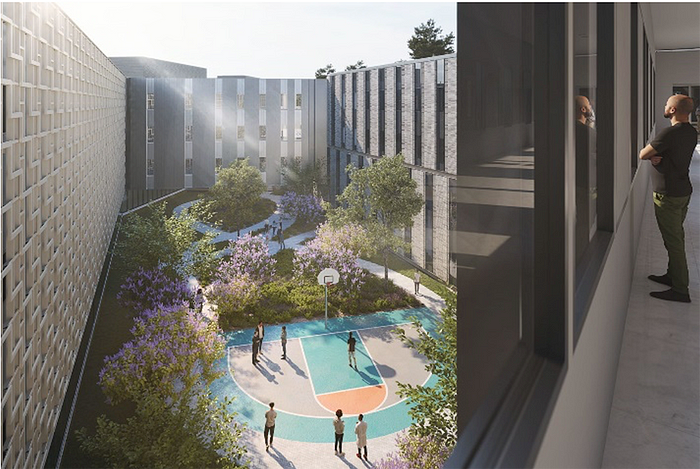Groundbreaking celebrates new forensic hospital on Western State campus
New facility is designed to provide spaces that expand beyond the traditional hospital ward and mimic parts of life outside of the hospital setting

Calling it a new day for Washington, Governor Jay Inslee, Department of Health and Social Services Secretary Jilma Meneses, and Gage Center of Forensic Excellence chief executive officer Mark Thompson kicked off the expansion of Western State Hospital with a groundbreaking ceremony on Oct. 17.
“This is a good day for the state of Washington,” Inslee said. “It is two kinds of groundbreaking. One is groundbreaking on a building, but in a larger sense it’s groundbreaking in how we provide behavioral health services for Washingtonians. It is part and parcel of a revolutionary way to provide better services for our family members, for our community members, for our fellow workers who run into mental health challenges.”

Secretary Meneses echoed the promise of the new day and the critical role employees play in that future.
“Thank you to all the dedicated DSHS staff at every part of the house,” Meneses said. “You humble me every day with your compassion, your dedication to our clients and our patients. You come every day to serve with love and dignity and respect and kindness. I am so appreciative of you and of the team that is going to build this beautiful facility.”
The 350-bed facility will enhance patient experience, improve treatment outcomes and set new standards for mental healthcare. The new forensic hospital will serve people entering through the criminal court system, offering a holistic approach to behavioral health treatment.

“There is a tremendous amount of history weaved through this campus over the last 150 plus years, but that history is what forms the foundation for our future,” said Thompson. “We recognize we have a long way to go to complete the governor’s vision and transform Washington’s mental health care system. Although Western State Hospital is only one piece of that continuum of care, it is a critical one. This new hospital will provide trauma-informed care to people struggling with the most significant impairments to their mental health.”
The project is part of a larger plan to improve the existing Western State Hospital campus. The construction will prioritize creating a therapeutic environment using evidence-based design, emphasize transparency and nature-inspired design, and maintain safety, security and operations. The hospital is expected to be finished by 2028.
Buildings will be arranged as a series of neighborhoods across the site. This layout encourages movement and supports patients’ future reintegration into society. At the heart of the design are five courtyards. The hospital weaves around these open spaces, creating a natural flow. Connecting bridges link the main hospital to the neighborhood buildings.

“This project is going to really meet the demand for years to come,” Meneses said. “This project is imaginative, it’s gorgeous, it’s going to change the landscape for patients needing our treatment.”
The design allows patients to view and access the courtyards throughout their daily activities. It encourages them to move from place to place as they would in a non-institutional environment. As patients navigate the space, they are surrounded by nature and greenery.
The design adds a sense of passage, place and rhythm to an environment that is typically isolated and restricted. Neighborhoods dedicated to activities like medication distribution and counseling sessions mimic places and routines found in day-to-day life.
Read more on the transformation of mental health services at Western State Hospital.
